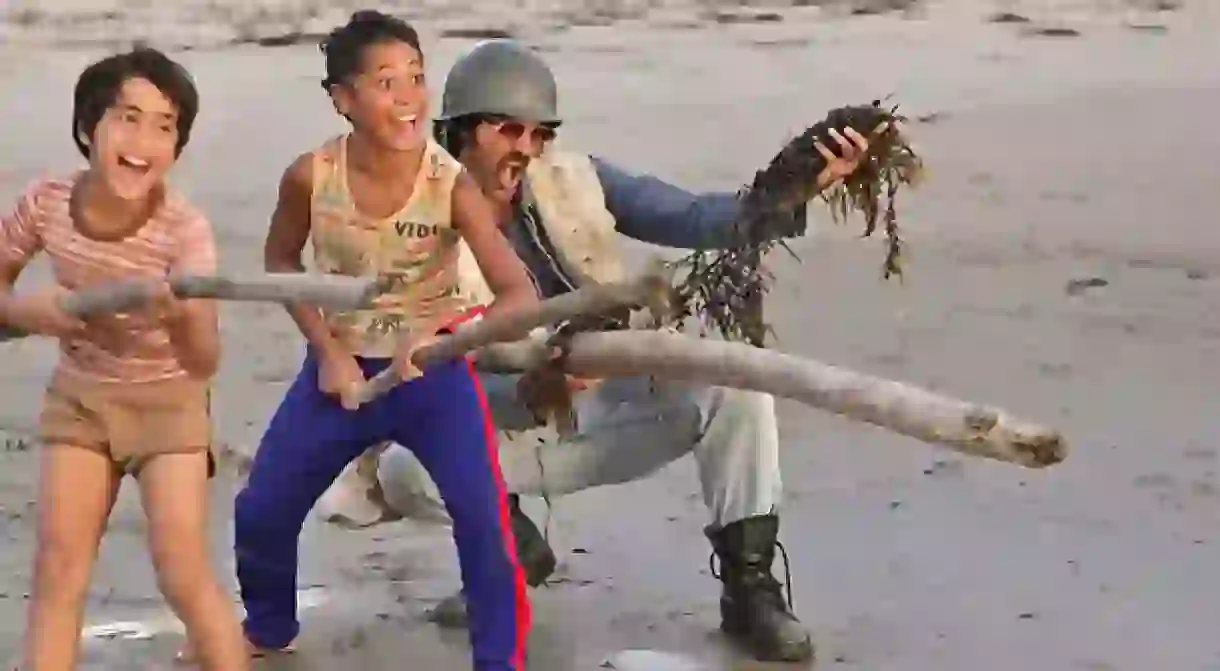New Zealand Cinema's Finest Directors

The small New Zealand movie industry may not be prolific, but it’s produced a handful of internationally recognized filmmakers. Here are the leading lights.
Taika Waititi
Actor, writer and director Taika Waititi is best known for his New Zealand comedy Boy. With stints directing the HBO comedy series Flight of the Conchords, Waititi has proven that his unique directorial style is unmatched in present-day New Zealand cinema. With a CV including Eagle vs Shark and Tama Tu, Waititi proves his mastery of both quirky and gritty New Zealand content. A dynamic and assured director, Waititi’s range finally came to the fore with the release of his vampire mockumentary, What We Do In The Shadows, in 2014. Although his career has not been as lengthy as New Zealand’s leading auteurs, his accolades and body of work promise a bright and ‘diverse’ future – not just for himself but also New Zealand cinema at large.
Lee Tamahori
Perhaps New Zealand’s most famous export behind wool, Lee Tamahori has made a name for himself in Hollywood after flexing his muscles in the New Zealand 1994 classic, Once Were Warriors. Once Were Warriors – New Zealand’s biggest box-office hit until Waititi’s Boy in 2010 – launched Tamahori into stardom and onto the international stage. Recognising his skill in directing gritty thrillers and his visually unique colour palette, Tamahori was asked to direct a number of Hollywood movies. He worked alongside the effervescent Welshman Sir Anthony Hopkins and American hero Alec Baldwin in The Edge, as well as directing cinematic stalwart Morgan Freeman in Along Came a Spider. Perhaps the pinnacle of his career was directing Pierce Brosnan and Halle Berry in Die Another Day. As such, Tamahori joins an exclusive club of directors, including Sam Mendes, who have contributed to the iconic James Bond franchise.
Roger Donaldson
Roger Donaldson is widely regarded as one of New Zealand’s greatest directors. Infusing his art-house technique with his ability to craft deep philosophical narratives, Donaldson has been recognised as leading the way in establishing New Zealand cinema’s humble yet reputable status. Much the same way scholars retrospectively confirm Scorsese’s Raging Bull as his greatest work, scholars also agree that Donaldson’s 1981 film Smash Palace has been his greatest work yet. Renowned as a piece in New Zealand’s film canon, Smash Palace set the precedent for what constituted a New Zealand movie. Its style and narrative influenced the dark, gothic and brooding visuals of many New Zealand films to come and was even the influence on future narratives. Films to follow often dealt with the mundanity of domestic life and the barbarism in nature. It is easy to see how he was able to direct the 2008 British heist film The Bank Job with such effortlessness. Easily New Zealand’s most influential director, Donaldson will remain in the pantheon of filmmaking icons.
Jane Campion
Famed for her European art-house style, Jane Campion has made a name for herself in both writing and directing. Always with a tinge of New Zealand cinema’s trademark ‘melancholy’, Campion’s greatest works are marked by a unique delicateness that signifies her idiosyncratic style. While she later made a name for herself as Campion the writer in Sweetie, In the Cut and Bright Star, her greatest work is by far as Campion the director in the 1993 hit, The Piano. Featuring Hollywood heavyweights Holly Hunter, Harvey Keitel and New Zealand’s very own Sam Neill, The Piano was a graceful art-house piece that showed off Campion’s ability to mesh pre-colonial New Zealand with a universal tale of feminist hardship. Not only did it launch her career, but it also launched the career of a young Anna Paquin, New Zealand’s first ever Oscar recipient for Best Supporting Actress. A revolutionary and one-of-a-kind film, Jane Campion is without a doubt one of New Zealand’s greatest filmmakers.
James Napier Robertson
New Zealand’s boy wonder, James Napier Robertson directed the 2014 hit, The Dark Horse. As both writer and director, Robertson captured classical New Zealand themes of dark suburbia, gang violence and mental illness. All the while, Robertson managed to intertwine these themes under the true story of Genesis Potini, a chess champion who suffered from bipolar disorder. Recognising his talents for working across several genres and producing gritty narratives and gothic visuals, Robertson was asked to direct the reboot of the New Zealand cult classic, Goodbye Pork Pie.













